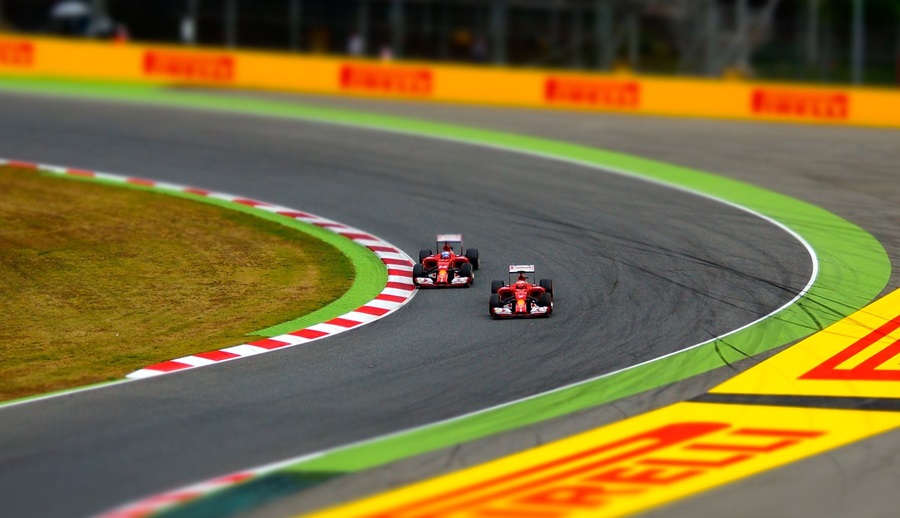- TEACHER TALES
- 4 de June de 2024
- No Comment
- 6 minutes read
The pedagogy of non-competitiveness

The pedagogy of non-competitiveness
Not demanding effort to our students it means simply to infantilize them, not to let them grow


At a school in Hospitalet, near Barcelona, a teacher achieved excellent outcomes with his six-year-old pupils when teaching them to read. The technique consisted of making the students play by simulating a Formula 1 car race. In one wall of the classroom each student had a drawing of their car in front of a distance ruler. The teacher said first to them what text would be part of the race that week and on Friday they proceeded to the car racing game, that is, Each one of the students read the proposed text and the speed and quality of their reading was measured. There were no winners or losers, a gold medal was given to the first, a silver one to the second and a bronze one to the third; there were too some so-called stone medals for those who obtained bad results, but this never happened. In fact, the teacher made sure that no one was worthy of the stone medals since everyone won that race at least once along the year, the first one of Primary School.
With this simple game where everyone won sometine, the students were trying hard throughout the week to read correctly the text. The result was that after three months, all the students had mastered the mechanics of reading with high motivation and deep satisfaction. Even the parents expressed their pleasure and congratulations for that teaching. But one day the school management called the teacher and told him they were going to prohibit him to play car races in the first grade classroom. The teacher, stunned, asked his director why they were going to ban his teaching in the classroom and the answer was that his game was promoting competitiveness among the students, since this practice was something sacrilegious and execrable in education.
Faced to the previous ban, and hidden from management, our teacher continued with his game among his students and maintained his successful technique to teach to read. Finally, our teacher left the school when he got the following year a job in another educational center where such teaching was not prohibited.
In another school, there was during the firsts grades a ranking of books read among students, something very attractive and with various rewards for the students, but the management prohibited it because they considered it did encourage competitiveness. Since this encouragement was removed from teaching practices, now the children of that school they barely read anymore.
In order to all this, it would be worth asking ourselves whether we should prohibit all our students from playing soccer or chess in the playground, or Parcheesi games at home. If all of this must be banished forever from our education because it promotes diabolical competitiveness, how do we teach then team play if there are no longer teams to compete against? Faced with such a paradox, there is no other point than condemning this type of pedagogical directives that prohibit to learn reading correctly by playing correctly, but nevertheless they preach at the same time that school should be playful, fun and happy. The argument that games encourage the sin of competitiveness among students seems to ignore that they were only making an effort to read better. Perhaps it turns out that the real fault is that non-competitive pedagogy absolutly ignores how to teach well. The reason is that countries with higher levels of education increase their competitiveness and get better results.
If we don’t promote effort, we will never obtain qualified professionals. For the Asian people, for example, the school success of their children is the most crucial thing for the family. If their children’s results are adverse, Asian parents think that their child have not tried hard enough. In fact, in the United States, the immigrants with the greatest student and professional success are the Asians, while Latinos and African Americans fall behind. Asian families instill in their kids that they must work hard with their studies, and even though they speak a language very different from English, these students are ahead of the native Anglos.
Let’s add the Asian students recently arrived in the US they do better than African Americans and Latinos born in the country, an irrefutable proof that effort takes precedence over social, cultural or ethnic origin. An example is the Orange County High School, near Los Angeles, where the majority of the inhabitants are Vietnamese and there is almost no academic failure. There are not academical level differences between girls and boys, nor between social classes, nor between those who are native English speakers or not. High school success is explained by the level of study, family cohesion and competitiveness in all of this. In short, Asian success is not genetically Asian but rather comes from perseverance and eagernest. Not demanding effort to our students it means simply to infantilize them, not to let them grow.
Source: educational EVIDENCE
Rights: Creative Commons

